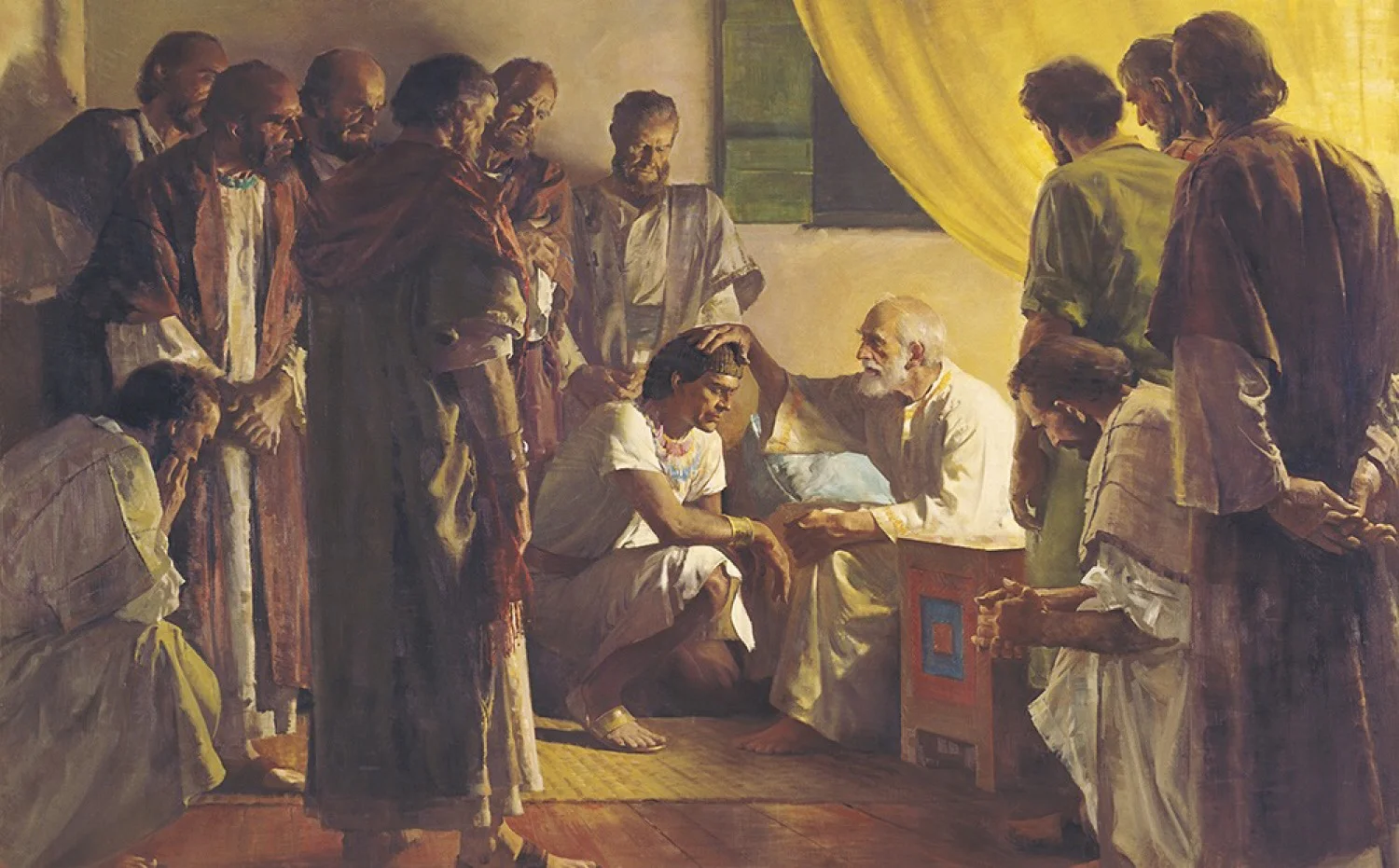Readings for today: Genesis 48-49, Matthew 15:29-16:12, Psalms 20, Proverbs 4:20-27
One could argue the main theme of the book of Genesis is blessing. From the opening pages of Scripture, it is clear God desires to bless His people. He blessed Adam and Eve. He blessed Noah and his family. He blessed Abraham and Sarah. Isaac and Rebekah. Jacob, Leah and Rachel. Joseph and Asenath. None of these people were perfect. None of them did anything to merit God’s blessing. In fact, they were often disobedient and sinful and prideful and rebellious. Cain kills Abel. Noah gets drunk and curses his grandson. Abraham lies about his relationship with Sarah. Sarah gets impatient with God’s promise and gives Abraham her servant. The consequences of these actions are significant. Each of the characters in the Genesis story face hardship and suffering. They know pain intimately. But God never abandons them. He continues to walk with them and bless them as their hearts return to Him.
God is not the only one who blesses. We bless as well. In chapter 49 of Genesis, Jacob calls his sons to his deathbed. He is fulfilling his patriarchal duty to pass on the blessings of his fathers. This blessing has to do with power and position within the growing family. It has to do with how the inheritance will be divided and who will lead after Jacob has gone. The blessing carries what passes for legal weight in an ancient near east context. Much like English common law, it is more unwritten than written and it will determine the future for each young man and their descendents.
Rueben is deposed as firstborn for sexual immorality. Simeon and Levi for their unrestrained rage and violence that put the family at risk. Judah will now become the leader after Jacob dies and his line will reign and rule over all of Israel. Zebulun will become a tribe of merchants and traders. Issachar will serve his brothers well. From Dan will come the judges. Spiritual leaders for Israel in the time before the kings. Not much is said about Gad, Asher, and Naphtali but the implication of blessing is clear. Special treatment is reserved for Jacob’s favored son, Joseph, for all he has endured. And Jacob ends his blessing by calling into question the character of his youngest son Benjamin. Again, these are not just words. With these words would come a certain amount of wealth and possessions. A certain amount of power and authority. A certain position within the family structure and hierarchy. To top things off, these words carry prophetic overtones as well. Even though Jacob’s eyes are failing, he’s sees the future for each of his boys laid out before him.
Think about the power of blessing in your own life. What kind of blessing - if any - did you receive from your mom or dad? What kind of blessing has come down your family line as a result of the faithfulness of a forefather or mother? How intentional are you as a parent about blessing your own children? Have you shared with them what you see in their future? One of the things I encourage those who are in hospice care to do is call their children and grandchildren and pass on a blessing. It is a powerful testimony that can last for generations. Of course, blessings are not just reserved for those we love. How do you bless your co-workers or classmates? How do you bless your friends and neighbors? How do you bless your brothers and sisters in Christ in your church family? How do you bless even your enemies and those who sin against you? Remember, God’s blessings in no way are dependent on the actions of sinful humanity. They are a product of His grace. The same should be true for us as well.
Readings for tomorrow: Genesis 50, Exodus 1-2:10, Matthew 16:13-17:9, Psalms 21, Proverbs 5:1-6
